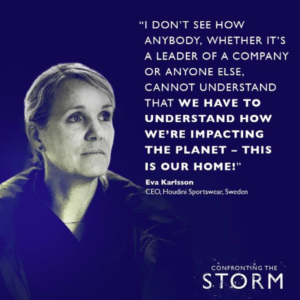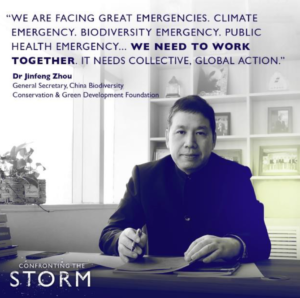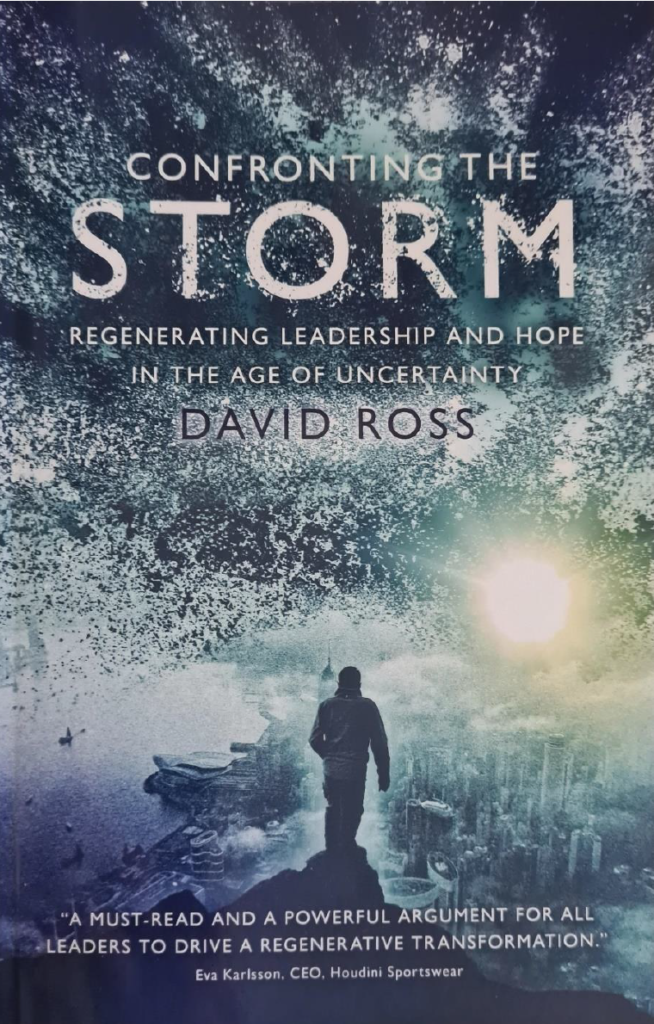 We are experiencing change like never before. Leaders are not only grappling with momentous uncertainty resulting from the pandemic, but arguably an even greater storm awaits them—the storm of complex and interconnected social, environmental, and economic challenges. Climate change. Shifting workforce needs. Energy and water. Poverty. Conflict, international and localised. “Normal” is never coming back.
We are experiencing change like never before. Leaders are not only grappling with momentous uncertainty resulting from the pandemic, but arguably an even greater storm awaits them—the storm of complex and interconnected social, environmental, and economic challenges. Climate change. Shifting workforce needs. Energy and water. Poverty. Conflict, international and localised. “Normal” is never coming back.
Many might accuse organisations of dealing with such disruption by focusing only on their shareholders or political masters, at the expense of the rest of our lives, livelihoods, and the planet. But, arguably the real root cause for this unwitting resistance to change is our deeper stories.
 As historian Yuval Noah Harari has observed, stories are of such importance to humanity. They create meaning, embedding in each of us what we should place importance on. We’ve seen how the story of leadership – the heroic leader, the command-and-control leader – has served society so powerfully for centuries. They have brilliantly solved linear-style challenges – for us.
As historian Yuval Noah Harari has observed, stories are of such importance to humanity. They create meaning, embedding in each of us what we should place importance on. We’ve seen how the story of leadership – the heroic leader, the command-and-control leader – has served society so powerfully for centuries. They have brilliantly solved linear-style challenges – for us.
Yet, these stories have continued for too long, with leaders and organisations unable or unwilling to do little more than tinker around the edges of these complex challenges, putting lives, livelihoods, and the planet in harm’s way. And the often-cynical ploys to maintain business-as-usual and consolidate self-interest are becoming more scrutinised.
The illusion is being questioned by stakeholders, resulting in sizeable consequences for organisational reputation, brand, loyalty, performance, and—indeed—viability. Business as usual is in its death throes.
 That compelled me to write Confronting the Storm.
That compelled me to write Confronting the Storm.
Confronting the Storm provocatively argues that, to successfully deal with the interconnected wicked challenges that we face, we can no longer rely on the thinking, behaviour and leadership that got us to “here”.
We must accept that the styles of leadership that have been celebrated for countless years have now become an obstacle.
A more collaborative style of leadership is now necessary if we are to solve these interconnected problems. Collaborating not only with staff, but also with relevant and interested external parties, such as government agencies, not-for-profits, even historical competitors. Readers will get to consider and reflect on the key skills, traits, and indeed, worldviews that are now crucial for regenerating lives, livelihoods, and the planet, pointing the way to a more innovative, successful future for leaders and their organisations.
That may be scary to those leaders who have valued control and indeed, certainty. But, as daunting as it may feel, the resulting opportunities to thrive are substantial.
Just ask Daniel Epstein, CEO of Unreasonable Group in Colorado. “My belief is that the future titans of industry will be the companies solving the world’s most pressing societal and environmental problems. They are creating more value for all of us and will, in turn, be more valuable.”
Daniel is no slouch; he’s not only the CEO of Unreasonable, he’s one of Fortune Magazine’s 50 Greatest Leaders. What will your legacy be?
For more information, head to: https://www.confrontingthestorm.global/
Bio:
 Working as a VUCA Strategist, David Ross helps organizations to protect or reclaim their reputation and performance by successfully navigating their organizations through the stormy waters of operating in a volatile, uncertain, complex and ambiguous (VUCA) world. He achieves this by helping to empower leaders and affected stakeholders to find lasting solutions to their most complex and contentious economic, social and environmental issues.
Working as a VUCA Strategist, David Ross helps organizations to protect or reclaim their reputation and performance by successfully navigating their organizations through the stormy waters of operating in a volatile, uncertain, complex and ambiguous (VUCA) world. He achieves this by helping to empower leaders and affected stakeholders to find lasting solutions to their most complex and contentious economic, social and environmental issues.
He has postgraduate and graduate qualifications in executive business administration, futures studies, advance conflict transformation, leadership, environmental engineering and ecology. David is currently writing a book on the leadership required to deliver sustainable development outcomes in a VUCA world and is co-authoring a book with Bob on how organizations can tackle climate change.